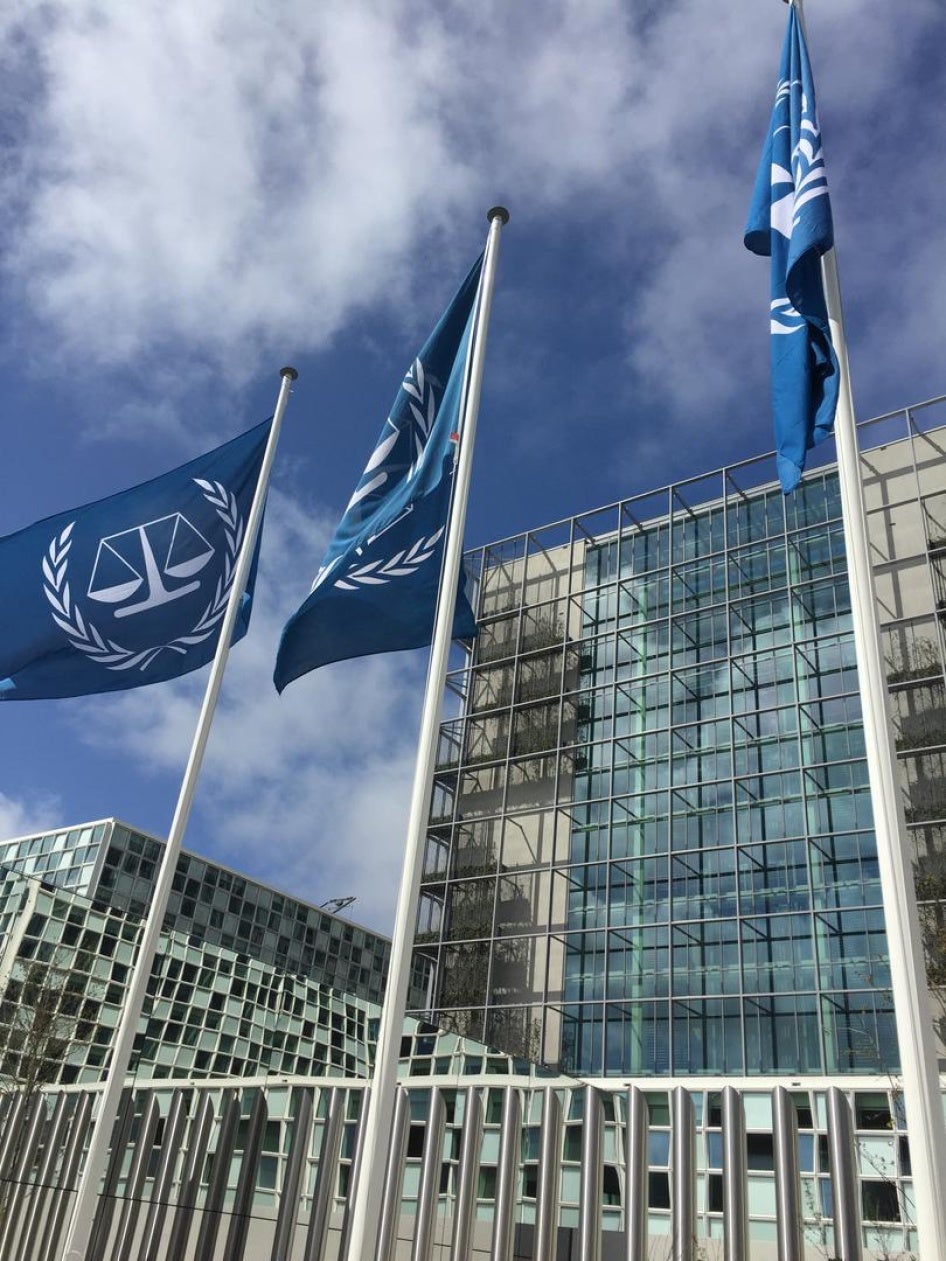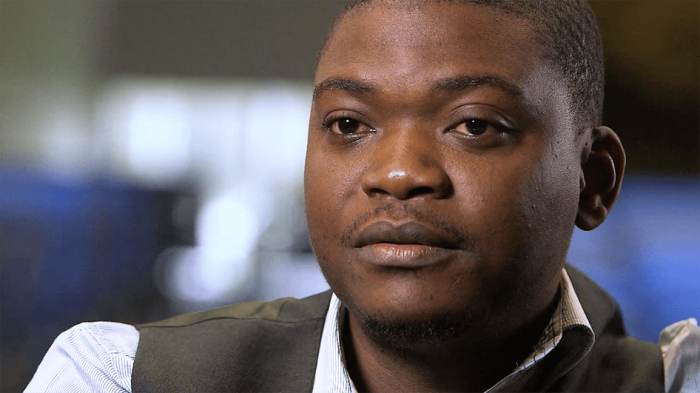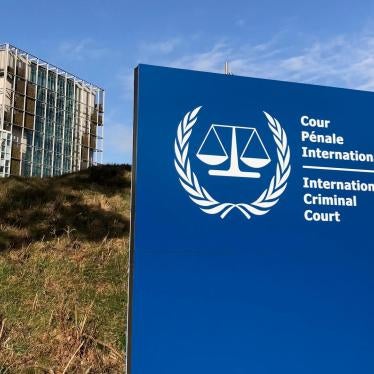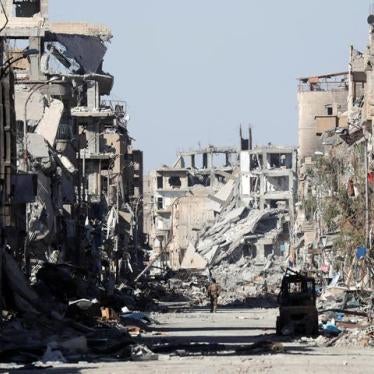The states parties of the International Criminal Court (ICC) will meet from December 5 to 12, 2018 at the annual session of the Assembly of States Parties (ASP). This year’s Assembly session concludes the twentieth anniversary year of the ICC’s founding treaty, the Rome Statute, adopted on July 17, 1998.
The events of the year have demonstrated why states parties need to reinvigorate their commitment to the court. The imperative for justice remains clear. The Office of the Prosecutor opened new preliminary examinations into the situations in Bangladesh/Myanmar, the Philippines, and Venezuela, and a decision regarding an investigation in Afghanistan is pending. Two individuals were surrendered to the ICC in cases arising out of the court’s Mali and second Central African Republic investigations. And yet the announcement by the United States that it will take steps to thwart ICC investigations makes evident that the landscape on which the court works to address situations of entrenched impunity will only grow more challenging.
Human Rights Watch calls on states parties to renew the annual Assembly session as an opportunity to project a unity of purpose in support of the ICC’s mandate. This will need to go hand-in-hand with commitments by ICC officials to improve the court’s delivery of justice. Perceptions of the court’s effectiveness in the eyes of affected communities, the court’s key constituency, have been undermined by the reversal of the conviction against Jean-Pierre Bemba, former vice-president of the Democratic Republic of Congo, in the court’s sole prosecution arising out of its first Central African Republic investigation, and the slow pace of other ongoing investigations. Together, a strengthened ICC firmly supported by its states parties at every opportunity will be more resilient to efforts to derail its mandate.
This briefing note sets out recommendations to states parties in the following priority areas: defending the ICC’s mandate and judicial independence; drawing on the Rome Statute’s twentieth anniversary to enhance the court’s delivery of justice; ensuring the court has resources adequate to its workload; election of the next prosecutor; and making victim participation meaningful.
I. Defending the ICC’s mandate and judicial independence
On September 10, 2018, US National Security Advisor John Bolton announced that the United States would not cooperate with the ICC, sought to discredit the court’s legitimacy, and threatened a number of retaliatory steps—including against court officials and states cooperating with the ICC—should the court investigate US citizens or the citizens of allied countries.[1] Subsequent remarks, including by US President Donald Trump before the UN General Assembly, reiterated the new direction of US policy towards the court. This approach represents a serious threat to the court’s ability to carry out its mandate with full independence and support.
Of course, this is not the first time the ICC has faced politicized opposition. For as long as the court is doing its job, it will engender intense opposition from those who have reason to fear accountability, as evidenced earlier this year by the decision of the Philippines president to withdraw the country from the ICC following the prosecutor’s opening of a preliminary examination into alleged crimes committed there. Concerted efforts by and among states parties have led to important results in overcoming opposition. These efforts are more important now as current threats to the court’s mandate are being made against a backdrop of broader pressure on the rules-based international order.
The response to the US position from several ICC states parties has been significant.
Some governments and the representatives of regional and international organizations made comments supportive of the court immediately following the Bolton speech. This was important to show that Bolton’s efforts to discredit and delegitimize the court would not go unchallenged. The trend of supportive response deepened and broadened in the course of the UN General Assembly’s program of work. These included the significant number of ICC references in General Debate interventions. Support also took joint form in the declaration signed by 35 countries renewing their commitment to the court.[2] Following the presentation of the annual report to the UN General Assembly by the ICC president, 38 statements on behalf of states parties made strong remarks in support of the court, highlighting its crucial role in the rules-based international order.[3] These and other responses have provided an important base of support that now needs to be sustained and grown, including by adding a broader range of states parties’ voices.
The upcoming Assembly session is an essential opportunity to demonstrate global support. While the Assembly session is always an important moment in this regard, this year, ICC states parties should make additional efforts to project outwards a unified message of their willingness to work together to defend the court’s mandate and its independence. This will convey the urgency and seriousness with which the Assembly stands ready to confront threats to the court’s effective functioning.
Public messages of commitment will need to continue beyond the Assembly, but the meeting can provide a next opportunity for focused attention and states parties should seek to make the most of the session.
Signaling strong support for the court’s mandate is not inconsistent with pressing court officials to improve their own performance, as well as examining where states can do more to provide other political, practical, and financial support. As discussed below, the period following the end of the Rome Statute anniversary year provides an opportunity for states parties and court officials to define priority areas for improved action.
Recommendations to ICC states parties:
- Send ministerial-level representation to make strong General Debate statements in support of the ICC and to attend the high-level event to celebrate the 20th anniversary of the Rome Statute hosted by the government of the Netherlands on the eve of the Assembly session. These statements—as well as statements made at other plenary debates and agenda items, including the agenda item “Addressing the threats directed at the International Criminal Court, its Judges and States Parties cooperating with the Court”—should emphasize the international commitment to the values of justice and accountability the ICC represents as a crucial but threatened element of the rules-based international order. They should also reflect a willingness to defend the court from threats to its independence and effective functioning, as well as the integrity of the Rome Statute;
- Announce, in General Debate statements, during other plenary sessions, or under other relevant agenda items, these or other concrete pledges of assistance:
- Using political and financial means to work together with ICC states parties that might be particularly vulnerable to pressure to deter cooperation or other support for the ICC;
- Continued attention to raising awareness of the ICC and Rome Statute system with national audiences, including the general public;
- Commitment to mainstream the ICC and related issues within and across national governments and into the work of the UN and other international and regional organizations; and
- Strengthened efforts to pursue targeted strategies to encourage additional Rome Statute ratifications.
- Include language in the Omnibus resolution resolving to work together as states parties to address threats to the legitimacy and independence of the ICC; and
- Publicize Assembly participation and General Debate statements nationally through press statements and conferences, the use of social media, and other communication tools.
Recent Human Rights Watch materials
- Elizabeth Evenson, “US Takes Aim at the International Criminal Court,” Human Rights Watch dispatch, September 11, 2018, https://www.hrw.org/news/2018/09/11/us-takes-aim-international-criminal-court.
II. Beyond Rome Statute at 20: Enhancing the ICC’s delivery of justice
Throughout 2018, ICC states parties, court officials, civil society organizations, and other international partners used the occasion of the 20th anniversary of the July 17, 1998 adoption of the Rome Statute to hold events or take other steps aimed at reaffirming collective commitment to the ICC’s mandate.
On the July 17 anniversary, there were events in The Hague and at UN headquarters in New York City. Forty-eight government representatives, including 13 ministers and the Nigerian president, spoke. Beyond these events, governments issued statements, an opinion piece, and even videos. EU foreign ministers adopted Council Conclusions. A first-of-its-kind informal session was held two weeks earlier at the UN Security Council to discuss improving that body’s support to the ICC. In June, 11 South American governments issued a declaration at a high-level seminar on cooperation held in Ecuador; a similar seminar was held in Georgia in October with the participation of the EU and 23 governments from the region. National-level events were held in many countries.[4] The anniversary has provided an important reference point in the initial efforts discussed above to counter efforts by the US government to discredit the ICC.
The anniversary events have not been characterized by “pat on the back” praise, but rather sober reflection of the challenges facing the ICC and a commitment to face up to these challenges. These challenges span responsibilities that belong to both states parties and court officials. Beyond other areas highlighted in this briefing note—consistent political support, adequate resources, ensuring election of highly qualified officials, and making victim participation meaningful—they range from strengthening and expediting the prosecution’s investigations, while ensuring those investigations are rooted in strategies designed to maximize the court’s impact in affected communities, to improving the efficiency of court proceedings. They include renewing attention to catalyzing national trials to extend the reach of justice, including roles for the ICC and the ASP, and urgently addressing the now-17 outstanding ICC arrest warrants. These are not new issues, and in fact, their durability provides a measure of the challenges facing the court and states parties in implementing the ICC’s difficult mandate.
Renewed attention to arrests through the court’s recently launched campaign, a seminar convened by the Assembly’s cooperation co-facilitators, Ambassador Philippe Lalliot (France) and Ambassador Momar Gueye (Senegal), and the planned Assembly plenary session on cooperation, which will include this as one topic, are much-needed steps forward.[5] Looking ahead from this anniversary year and drawing on the debates that have taken place over the course of 2018, Human Rights Watch calls on ICC officials and states parties, within their respective responsibilities, to develop a common understanding of other priority areas for dedicated attention and improvement. This need not be formalized. What we seek is a common understanding of key challenges and a commitment to address those challenges, achieved through ongoing discussions between ICC states parties, its officials, and civil society organizations. A common understanding should provide a level of mutual accountability within the Rome Statute system, moving it further forward in the effective delivery of justice.
Recommendations to ICC states parties:
- Announce during the cooperation plenary and pledging ceremony on voluntary agreements:
- Efforts to implement the Rome Statute into national legislation and to conclude cooperation agreements with the ICC on the relocation of witnesses, interim release, final release, and enforcement of sentences; and
- Renewed attention to arrest strategies and other necessary cooperation in the court’s investigations, prosecutions, trials, and reparation proceedings and with victims and defense teams;
- Participate actively in the plenary discussion on the Rome Statute’s 20th anniversary to take stock of the year’s initiatives and to identify areas for future attention by states parties and court officials when it comes to enhancing the court’s delivery of justice; and
- Include as an annex to the Omnibus resolution a listing of anniversary initiatives as a reference point for future efforts.
Recent Human Rights Watch materials
- Kenneth Roth (Human Rights Watch) and Salil Shetty (Amnesty International), “Ensuring that the ICC Rises to the Challenge,” commentary, Foreign Policy in Focus, July 11, 2018, https://www.hrw.org/news/2018/07/11/ensuring-icc-rises-challenge.
- “The Future of International Justice Amid Boundless Cruelty,” Human Rights Watch interview, July 11, 2018, https://www.hrw.org/news/2018/07/11/interview-future-international-justice-amid-boundless-cruelty.
- Human Rights Watch, ICC Turns 20: Reflections from Law Students Around the World, video, July 12, 2018, https://www.hrw.org/video-photos/video/2018/07/12/icc-turns-20-reflections-law-students-around-world.
- Human Rights Watch, ICC: Victims of Atrocity Deserve Justice, video, July 16, 2018, https://www.hrw.org/video-photos/video/2018/07/16/icc-victims-atrocities-deserve-justice.
- Human Rights Watch, Pressure Point: The ICC’s Impact on National Justice; Lessons from Colombia, Georgia, Guinea, and the United Kingdom, May 2018, https://www.hrw.org/report/2018/05/03/pressure-point-iccs-impact-national-justice/lessons-colombia-georgia-guinea-and.
III. Budget
ICC states parties will decide during the Assembly session on the court’s budget for the coming year. For 2019, excluding interest on the host state loan, the ICC has requested €147.29 million or an increase of 2.4 percent over its €143.85 million budget for 2018. The Committee on Budget and Finance has recommended a budget of €144.7 million, or an increase of just 0.6 percent.[6]
The call in recent years by some states parties for zero growth in the court’s budget has, in our view, affected the court’s willingness to come forward with budget proposals that would more adequately address its increasing workload. It has often led to significant time spent by states parties in negotiations over the annual budget but resulting in bare minimum year-to-year increases. Human Rights Watch calls on the court and states parties to continue to work towards greater, shared understanding of the court’s resource needs in order to improve prospects for a future budgeting process that will ensure the court has sufficient resources.
Recommendations to ICC states parties:
- Scrutinize the Committee on Budget and Finance’s recommendations, adopt a 2019 budget for the court adequate to ensure the effective implementation of its mandate, and replenish the Contingency Fund; and
- Affirm, in statements to the General Debate, during budget negotiations, and at other relevant moments during the session, the importance of ensuring the court has adequate resources to cope with increased demand for accountability and call for improvements to the current budgeting process to that end, while rejecting a zero-nominal growth approach to the ICC’s budget.
IV. Election of the next prosecutor
The Assembly’s Bureau is currently consulting on how to proceed with the election of the next ICC prosecutor. Following initial discussions with the Bureau, at this writing, the Assembly’s president has asked the coordinators of the New York and Hague Working Groups to consult states parties on the composition and appointment of a “search committee.”[7] The Bureau constituted a search committee to facilitate the nomination and election, by consensus, of the current prosecutor, Fatou Bensouda, in 2011.[8] Bensouda’s non-renewable term expires in June 2021.
Electing the court’s officials, including its prosecutor, are among states parties’ most significant responsibilities when it comes to ensuring the ICC’s effective functioning. Any process should make merit a priority in the election of the next ICC prosecutor, who through their decisions, will drive the difficult work of the court forward. Many of the criteria we set out along with other civil society organizations in 2011—including demonstrated excellence in complex criminal trials and institutional management, a firm commitment to act independently and impartially, and an ability to communicate with different stakeholders—will remain relevant, if not more so, to the next election.[9]
Human Rights Watch looks forward to discussions regarding the composition and mandate of the search committee, including by drawing lessons from the 2011 process. The mandate should include outreach, identification, and assessment of candidates. At a minimum, and consistent with a priority focus on merit, steps will be needed to avoid any conflict of interest between the distinct outreach and assessment functions of a search committee. When it comes to assessment, the committee should be composed primarily, if not exclusively, of independent experts. The committee should also conduct work in a manner that discourages campaigning by states and seeks appropriate transparency. The search process should be in place no later than mid-2019 to permit sufficient time for robust outreach to identify the most highly qualified nominees.
At this Assembly session, the Bureau should include in its annual report progress to date, as well as initial indications of the search committee’s mandate, composition, and timeline. This will be key to ensuring that there is broad awareness among states parties and a collective commitment to a rigorous process that leads to a merit-based outcome.
Recommendations to ICC states parties:
- Express, in General Debate statements or at other appropriate moments during the session, a commitment to a rigorous, merit-based process to elect the next ICC prosecutor.
V. Making victim participation meaningful
At this Assembly session, states parties, under the leadership of the United Kingdom and Argentina as focal points within one of the clusters of the Study Group on Governance, will hold a plenary session on “‘Achievements and Challenges regarding Victim Participation and Legal Representation after 20 years of the adoption of Rome Statute.” The system of victim participation is one of the treaty’s key innovations. These issues have also received attention this year in the second cluster within the Study Group on Governance, and the court’s judges included issues relevant to victim participation and reparations in their retreat this year. The Victims’ Rights Working Group held a series of lunch talks over the course of the year in The Hague designed to bring renewed attention to victims’ rights before the court.[10]
There is scope and need to increase attention to implementing victim participation in practice. While the right of participation is not absolute and will be available to a limited number of victims in any given situation tried before the court, it can improve the quality of proceedings and provide a key bridge to victims and affected communities to ensure that justice is not only done, but seen to be done. It has the potential to enhance the court’s legitimacy by serving victims meaningfully and to increase the court’s impact for affected communities, a key goal.
Human Rights Watch has focused its recent monitoring on one aspect of legal representation for victims: ensuring that victims have a greater voice in the choice of their counsel. Few victims will appear in person before the court and instead exercise their rights of participation through counsel. Human Rights Watch has been concerned by a trend at the court to take over decision-making about who will represent victims, with limited input from victims and despite provisions within the Rules of Procedure and Evidence that provide strong support for facilitating victim’s choice of counsel.
Since an August 2017 Human Rights Watch report on this topic, there have been some important developments in court practice. Specifically, decisions in the Al Hassan case arising out of the situation in Mali show a concern by the pre-trial chamber to seek out detailed information through the Registry relevant to legal representation and to ensure that a process is carried out under Rule of Procedure and Evidence 90(2) to support victims in coordinating representation, rather than skipping to the appointment of a common legal representative directly by the Registry or chamber.[11] Human Rights Watch has not conducted new research to evaluate the impact of this approach, which remains underway, but it appears to be a step towards placing higher priority on the views and choice of victims in this important area. We look forward to monitoring future developments.
The issue of legal representation is largely one that needs to be addressed by policies and practices implemented by the court’s judges and the Registry, but there is an important role here for states parties. For policies that prioritize victims’ choice of counsel to succeed, they may need additional support in the court’s budget, including to deepen engagement within affected communities and for legal aid because victims will often not be able to afford legal representation. In 2019, the court is expected to present adjustments to its legal aid policy for the consideration of the Assembly. Human Rights Watch looks forward to engaging with the court in its policy setting to ensure that legal aid is available in a manner that prioritizes victims’ choice of counsel.
Recommendations to ICC states parties:
- Affirm, in statements during the Assembly session, including the General Debate and through active participation in the plenary session on victim participation and representation, the importance of ensuring meaningful victim participation and the necessity of court outreach and engagement in affected communities to that end; and
- Signal, in statements during the Assembly session, willingness to provide support for the necessary resources that may be required to implement changes in court policy and practice aimed at empowering victims in proceedings, including when it comes to decisions about their legal representation.
Recent Human Rights Watch materials
- Human Rights Watch, Who Will Stand for Us? Victims’ Legal Representation at the ICC in the Ongwen Case and Beyond, August 2017, https://www.hrw.org/report/2017/08/29/who-will-stand-us/victims-legal-representation-icc-ongwen-case-and-beyond.
[1] Matthew Kahn, “National Security Adviser John Bolton Remarks to Federalist Society,” post to “Lawfare Blog” (blog), September 10, 2018, https://www.lawfareblog.com/national-security-adviser-john-bolton-remarks-federalist-society (accessed November 19, 2018).
[2] “Brazil declares support for the International Criminal Court (ICC),” BrazilGovNews, October 8, 2018, http://www.brazil.gov.br/about-brazil/news/2018/10/brazil-declares-support-for-the-international-criminal-court-icc (accessed November 19, 2018) (reprinting text of joint declaration).
[3] UN Meeting Coverage, “Facing Political Attacks, Limited Budget, International Criminal Court Needs Strong Backing to Ensure Justice for Atrocity Crimes, President Tells General Assembly,” October 29, 2018, https://www.un.org/press/en/2018/ga12084.doc.htm (accessed November 19, 2018).
[4] See listing of events maintained by the ASP Secretariat, https://asp.icc-cpi.int/en_menus/asp/asp%20events/20a/Pages/default.aspx (accessed November 19, 2018); see also links included in Anjelica Jarrett, “International Criminal Court Treaty Turns 20,” Human Rights Watch dispatch, July 20, 2018, https://www.hrw.org/news/2018/07/20/international-criminal-court-treaty-turns-20.
[5] Note verbale from the ICC on arrest campaign, undated document (on file with Human Rights Watch); ASP, “[Draft] Report of the Bureau on cooperation,” November 12, 2018 (on file with Human Rights Watch), paras. 22-23.
[6] ASP, “Report of the Committee on Budget and Finance on the work of its thirty-first session,” ICC-ASP/7/15, October 29, 2018, https://asp.icc-cpi.int/iccdocs/asp_docs/ASP17/ICC-ASP-17-15-ENG-CBF-31-Report.pdf (accessed November 19, 2018), paras. 12, 123.
[7] Bureau of the ASP, “Agenda and decisions,” 15th Meeting, October 22, 2018, https://asp.icc-cpi.int/iccdocs/asp_docs/Bureau/ICC-ASP-2018-Bureau-15.pdf (accessed November 19, 2018), p. 2.
[8] ASP, “Report on the evaluation of the process on the election of the Prosecutor,” ICC-ASP/12/58, November 15, 2013, https://asp.icc-cpi.int/iccdocs/asp_docs/ASP12/ICC-ASP-12-58-ENG.pdf (accessed November 19, 2018).
[9] Letter to Search Committee for the next Prosecutor of the ICC from Fédération Internationale des Ligues des Droits de l'Homme (FIDH, International Federation of Human Rights), Human Rights Watch, International Center for Transitional Justice, International Crisis Group, Institute for Security Studies, and Open Society Justice Initiative, March 18, 2011, https://www.hrw.org/news/2011/03/18/icc-selection-criteria-next-prosecutor-meet-challenges-ahead.
[10] ASP, “[Draft] Report of the Bureau on the Study Group on Governance,” November 9, 2018 (on file with Human Rights Watch); “ICC judges hold retreat focusing on collegiality and various aspects of judicial proceedings,” ICC press release, ICC-CPI-20180928-PR1412, September 28, 2018, https://www.icc-cpi.int/Pages/item.aspx?name=pr1412 (accessed November 19, 2018); REDRESS, “Lunch talks in The Hague on victims’ rights on the 20th anniversary of the Rome Statute,” post to Victims’ Rights Working Group website, October 23, 2018, http://www.vrwg.org/home/home/post/80-lunch-talks-in-the-hague-on-victimsa-rights-on-the-20th-anniversary-of-the-rome-statute (accessed November 19, 2018).
[11] See, for example, Prosecutor v. Al Hassan Ag Abdoul Aziz Ag Mohamed Ag Mahmoud, ICC, Case No. 01/12-01/18, “Decision on the Registry’s Reports concerning Victim Participation,” September 11, 2018, http://www.legal-tools.org/doc/cdd2cb/, paras. 16-28.










